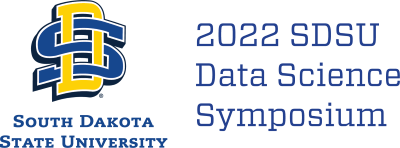Presentation Type
Workshop
Abstract
Participants will gain hands-on experience with these analyses using tools for pattern discovery in multi-omics. Interspersed with lecture content, attendees will work through multi-omics analysis exercises with real data. Participants are strongly encouraged to bring their own data and study examples for application. Open to computational biologists, bioinformaticians, principal investigators, and their research teams including advanced Ph.D. students. Basic familiarity with multi-omics upstream bioinformatics tools are recommended. Beginner-level familiarity with R is required. Methodological advancements paired with measured multi-omics data using high-throughput technologies enable capturing comprehensive snapshots of biological activities. In particular, low-cost, culture-independent omics profiling has made metagenomics, metabolomics, and proteomics (“multi-omics”) surveys of human health, other hosts, and the environment. The resulting data have stimulated the development of new statistical and computational approaches to analyze and integrate omics data, including human gene expression, microbial gene products, metabolites, and proteins, among others. Multi-omics data generated from diverse platforms are often fed into generic downstream analysis software without proper appreciation of the inherent data differences, which could result in incorrect interpretations. Further, there are also a large collection of downstream analysis software platforms and appropriately selecting the best tool can be extraneous for untrained researchers. In this workshop, we will thus present a high-level introduction to computational multi-omics, highlighting the state-of-the-art in the field as well as outstanding challenges geared towards downstream analysis methods. This will include an introduction to the biological goals of typical multi-omics studies and the statistical methods currently available to achieve them.
Start Date
2-7-2022 1:00 PM
End Date
2-7-2022 5:00 PM
Workshop 1 - Omics Data Workshop
Pasque 255
Participants will gain hands-on experience with these analyses using tools for pattern discovery in multi-omics. Interspersed with lecture content, attendees will work through multi-omics analysis exercises with real data. Participants are strongly encouraged to bring their own data and study examples for application. Open to computational biologists, bioinformaticians, principal investigators, and their research teams including advanced Ph.D. students. Basic familiarity with multi-omics upstream bioinformatics tools are recommended. Beginner-level familiarity with R is required. Methodological advancements paired with measured multi-omics data using high-throughput technologies enable capturing comprehensive snapshots of biological activities. In particular, low-cost, culture-independent omics profiling has made metagenomics, metabolomics, and proteomics (“multi-omics”) surveys of human health, other hosts, and the environment. The resulting data have stimulated the development of new statistical and computational approaches to analyze and integrate omics data, including human gene expression, microbial gene products, metabolites, and proteins, among others. Multi-omics data generated from diverse platforms are often fed into generic downstream analysis software without proper appreciation of the inherent data differences, which could result in incorrect interpretations. Further, there are also a large collection of downstream analysis software platforms and appropriately selecting the best tool can be extraneous for untrained researchers. In this workshop, we will thus present a high-level introduction to computational multi-omics, highlighting the state-of-the-art in the field as well as outstanding challenges geared towards downstream analysis methods. This will include an introduction to the biological goals of typical multi-omics studies and the statistical methods currently available to achieve them.

